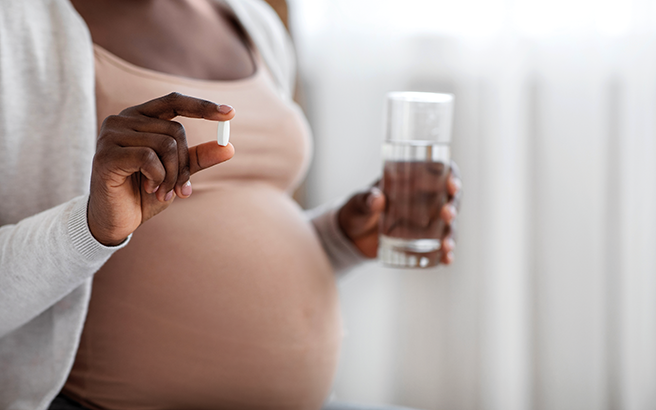Thirty years ago, the MRC Vitamin Study Research Group, led by Prof Sir Nicholas Wald, reported that folic acid supplementation for women around the time of conception reduced the risk of serious neural tube defects such as anencephaly, spina bifida and encephalocele in their babies.
That study led to the introduction of mandatory folic acid fortification of staple foods, such as flour, in more than 80 countries. However, in the UK there were concerns about unintended effects of fortification, such as masking vitamin B12 deficiency and increased risk of colon cancer. This led the Food Standards Agency to advise against mandatory fortification of folic acid in 2002.
In 2009, the Scientific Advisory Committee on Nutrition reiterated the recommendation to fortify, considering studies on folic acid and colorectal cancer, and finding no evidence that supplements increased risk. While the Food Standards Agency recommended mandatory fortification this time around, no regulatory action was taken.
In 2019, there was a public consultation on options for folic acid fortification and in September 2021 the UK government announced it would introduce the mandatory fortification of non-wholemeal wheat flour with folic acid.
The NHS strongly recommends that women who could become pregnant or are planning a pregnancy take a 400 micrograms folic acid supplement every day before pregnancy and until they are 12 weeks pregnant. This advice remains but, with around half of pregnancies in the UK unplanned, the government is taking action to increase folic acid intake nationally to help protect more babies, especially where a pregnancy is unplanned, and supplements are not taken early enough.
Kate Steele, CEO of Shine, the charity that provides specialist support for people whose lives have been affected by spina bifida and hydrocephalus, says:
In its simplest terms, the step will reduce the numbers of families who face the devastating news that their baby has anencephaly and will not survive. It will also prevent some babies being affected by spina bifida, which can result in complex physical impairments and poor health. This is truly a momentous day.
This article is from Informed, our regular newsletter for health professionals. Sign up for Informed and a host of other resources here.

